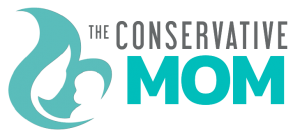The recent survey indicating that over 1 in 4 Gen Z adults in the U.S. identify as LGBTQ has sparked discussions about societal shifts and the influence of LGBTQ+ propaganda, particularly on younger generations. The survey, conducted by the Public Religion Research Institute (PRRI), reveals that 28% of Gen Z adults (ages 18 to 25) identify as LGBTQ, a stark contrast to older age groups, with only 10% of all adults, 16% of millennials, 7% of Generation X, 4% of baby boomers, and 4% of the Silent Generation identifying as such.
From a conservative perspective, some argue that the pronounced increase in LGBTQ identification among Gen Z may be attributed, in part, to the pervasive influence of LGBTQ+ propaganda targeting children over the past decade. Critics suggest that the emphasis on “alternative lifestyles” in public schools and online platforms, often beyond the awareness of parents, has contributed to a significant shift in the self-identification patterns of younger generations. While acknowledging increased societal tolerance, conservatives point out the potential impact of what they see as an overwhelming volume of LGBTQ+ messaging aimed at shaping young minds.
The survey’s findings align with other major surveys, including Gallup’s, which similarly highlighted Gen Z as the queerest adult generation. Some argue that the narrative of increased acceptance doesn’t fully address the role of targeted advocacy and education campaigns in shaping identity. Critics of these campaigns contend that they may go beyond promoting tolerance and inadvertently contribute to influencing personal identity and expression, especially among impressionable youth.
As LGBTQ rights face challenges in the U.S., the survey results are positioned within a broader context of ongoing societal debates. Kelley Robinson, president of the Human Rights Campaign, the country’s largest LGBTQ advocacy group, emphasizes the importance of LGBTQ+ visibility, suggesting that Gen Z’s significant presence will have political repercussions. From a conservative standpoint, there is concern about how this visibility may impact the political landscape, with potential implications for those who express views not aligned with the LGBTQ+ agenda.
It’s noteworthy that the article itself is acknowledged to have potential bias, being written by Matt Lavietes, a correspondent for NBC Out, a platform that specifically highlights LGBTQ+ leaders, creators, and newsmakers. This acknowledgment underscores the importance of critically examining media sources and perspectives when interpreting survey results and societal trends.

